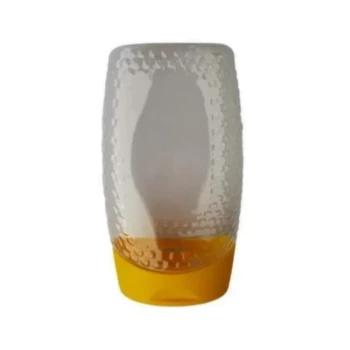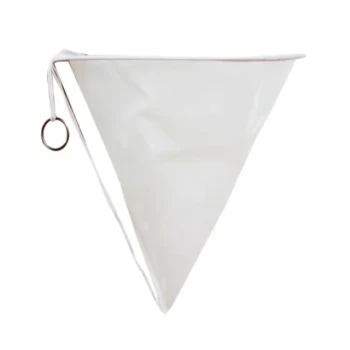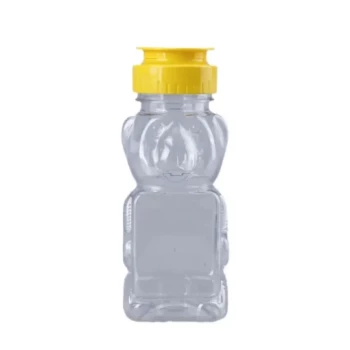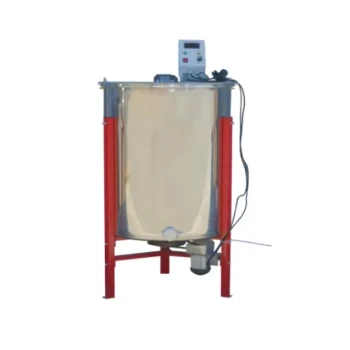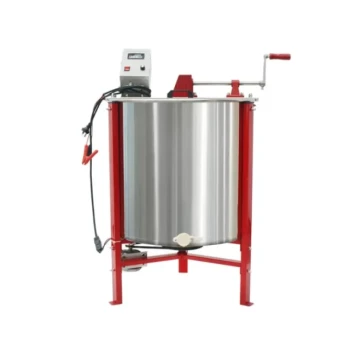The primary safety consideration for raw honey is absolute avoidance for infants under one year of age due to the risk of a rare but serious illness called infant botulism. For healthy children over one year old and adults, raw honey is generally considered safe to consume. However, safety also depends on the hygienic practices used during extraction and bottling to prevent environmental contamination.
While raw honey is safe for most people, the risk it poses to infants is non-negotiable. For all other consumers, the key to safety shifts from the honey's inherent properties to the quality and cleanliness of its source.
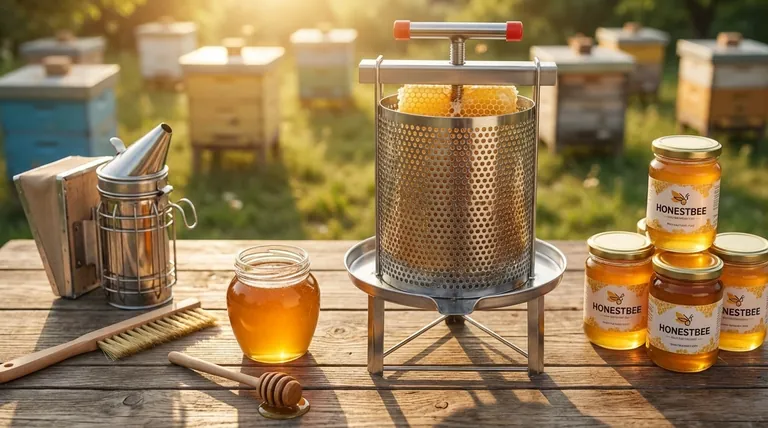
The Critical Risk: Infant Botulism
The most severe health warning associated with honey, both raw and pasteurized, concerns infants. This risk is specific and well-documented.
Why Infants Are Uniquely Vulnerable
An infant's digestive system is not yet fully developed. Its low acidity and immature gut flora cannot inhibit the growth of certain bacteria.
This creates a window of vulnerability for spores of the bacterium Clostridium botulinum to germinate and produce the toxin that causes botulism.
The Nature of Botulism Spores
Clostridium botulinum spores are naturally present in the environment, including in soil and dust. Bees can inadvertently introduce these resilient spores into honey.
These spores are harmless to adults and children over 12 months because their mature digestive systems prevent the bacteria from growing and producing toxins.
The "Over 12 Months" Guideline
Health authorities worldwide have established the age of 12 months as the safe threshold for introducing honey. By this age, a child's gut microbiome is robust enough to neutralize the botulism spores.
Beyond Botulism: The Risk of Contamination
Because raw honey is not heat-treated (pasteurized), its safety is directly tied to the conditions under which it was harvested and handled.
The Importance of Hygienic Extraction
Honey is a food product and must be handled with extreme care to prevent contamination. The environment where honey is extracted from the comb should be meticulously clean.
Dirty surfaces, unclean hands, or airborne debris can introduce unwanted bacteria or foreign matter into the final product.
Choosing a Trusted Source
Since consumers cannot oversee the extraction process, purchasing raw honey from a reputable beekeeper or supplier is crucial.
Trusted producers adhere to strict sanitation protocols, ensuring the honey remains pure from the hive to the jar.
Understanding the Trade-offs
Choosing between raw and processed honey involves a simple trade-off between its natural state and guaranteed microbial safety.
Raw vs. Pasteurized Honey
Raw honey is not heated, which preserves natural enzymes and pollen but does not kill any potential botulism spores or other microbes.
Pasteurized honey is heated to kill yeast and bacteria, including botulism spores. This process extends shelf life and ensures microbial safety but may alter the honey's delicate flavors and nutritional profile.
Evaluating Overall Safety
For the general population (excluding infants), the risk from properly handled raw honey is extremely low. The main consideration becomes sourcing a clean, unadulterated product from a known and trusted beekeeper.
Making an Informed Choice About Raw Honey
Your decision should be based entirely on who will be consuming the honey.
- If you are serving an infant under 12 months: Absolutely avoid all types of honey, both raw and processed, to eliminate the risk of infant botulism.
- If you are an adult or have children over one year old: Raw honey is generally safe, provided you source it from a reputable producer who prioritizes clean handling practices.
- If your priority is guaranteed microbial purity above all else: Pasteurized commercial honey is heated to eliminate spores and bacteria, offering the highest level of microbial safety.
Ultimately, understanding these specific risks empowers you to enjoy honey by confidently choosing the right type for the right person.
Summary Table:
| Safety Consideration | Key Takeaway |
|---|---|
| Infant Botulism | Critical: Never give any honey to infants under 1 year old. |
| Source Quality | Essential: Purchase raw honey only from reputable, hygienic producers. |
| Handling & Extraction | Important: Safe honey depends on clean practices from hive to jar. |
| For Adults & Children 1+ | Generally Safe: Raw honey is safe for this group if sourced correctly. |
Source Your Honey with Confidence from HONESTBEE
For commercial apiaries and beekeeping equipment distributors, the quality and safety of your honey start with professional-grade supplies. HONESTBEE provides the durable, hygienic equipment you need to ensure your raw honey is extracted, handled, and bottled to the highest safety standards.
Let us help you protect your product's integrity and your customers' well-being.
Contact our wholesale experts today to discuss your beekeeping supply needs.
Visual Guide
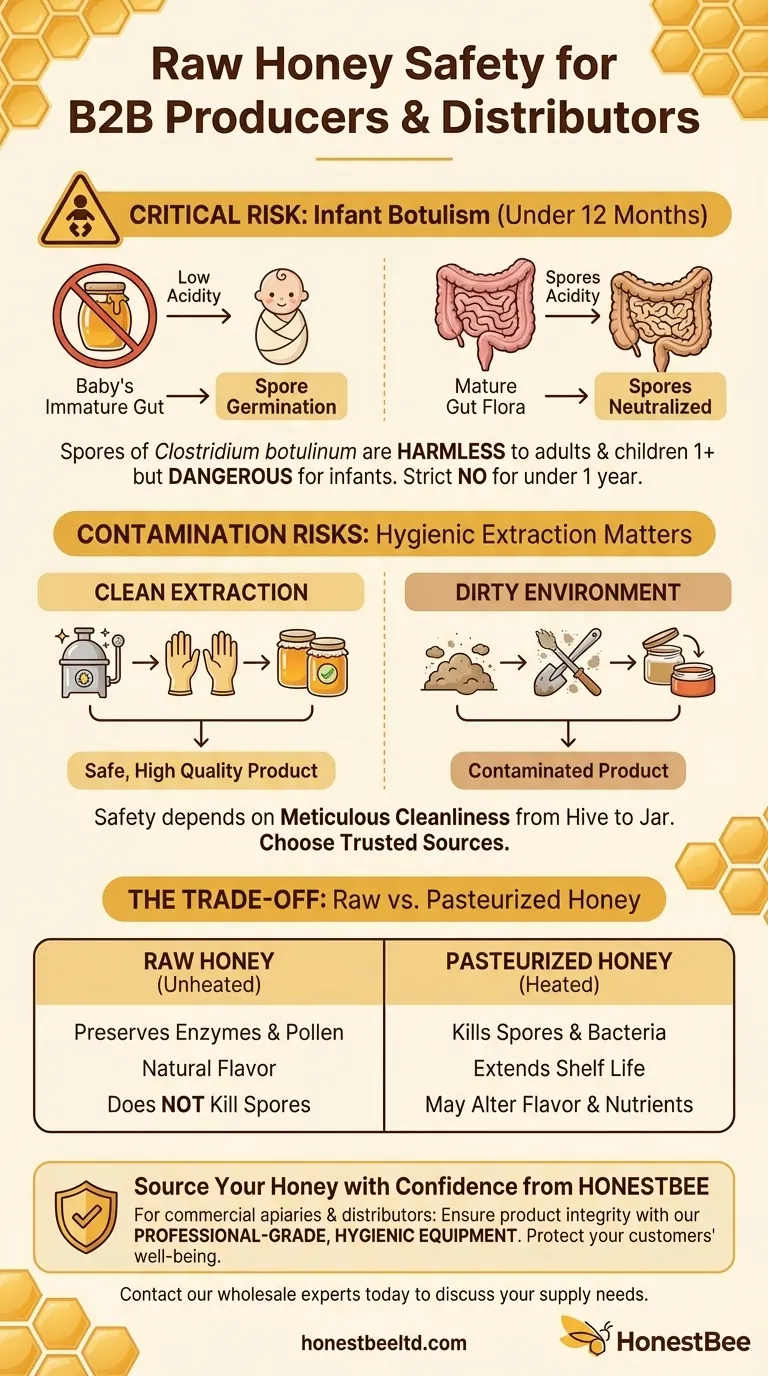
Related Products
- Easy Use Manual Stainless Steel Honey Press for Honey Comb
- Economy Honey Homogenizer Mixer and Melting Machine for Beekeeping
- Honey Concentrating and Filtering Dehumidifier Machine 2T Capacity for Honey
- Inverted Squeezable Honey Jar with No Drip Flip Top Cap for Easy Pouring
- Professional Cone-Shaped Honey Filter with Reinforced Steel Ring
People Also Ask
- What are the key features of a honey press? Maximize Yield with Durable, Efficient Extraction
- What are the material advantages of using a stainless steel honey press? Ensure Pure, Lead-Free Honey Extraction
- Moveable Frame Hives vs. Stick Method: Why Visual Observation is Best for Honey Harvesting
- How does a honey press benefit chunk honey production? Unlock Authentic, Artisanal Honey Quality
- What is the purpose of a honey press? Maximize Yield for Small-Scale Beekeeping



